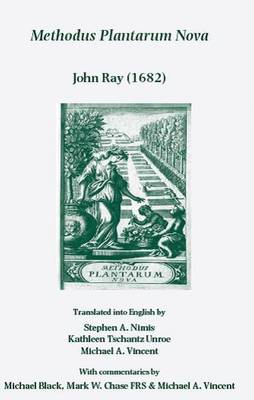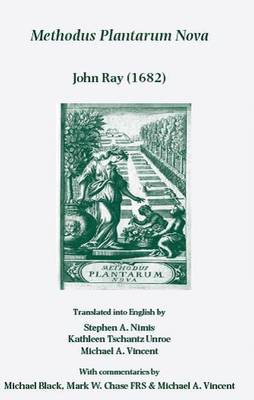
- Afhalen na 1 uur in een winkel met voorraad
- Gratis thuislevering in België vanaf € 30
- Ruim aanbod met 7 miljoen producten
- Afhalen na 1 uur in een winkel met voorraad
- Gratis thuislevering in België vanaf € 30
- Ruim aanbod met 7 miljoen producten
Zoeken
€ 83,95
+ 167 punten
Omschrijving
John Ray (1627-1705) contributed several important concepts to the field of plant taxonomy: first, the division of plants into groups based on seed leaves (Monocotyledonae and Dicotyledonae); second, the differentiation between flowering and flowerless plants; third, the use of the term "petal" to designate the "leaf " of the flower; fourth, the use of stamens and pistils in plant classification, anticipating the emphasis of Linnaeus. Ray worked towards a natural classification of plants that was based on more than one "data set" classification should not use a single character but ideally should make use of as much information as was available for as many parts of the plant as possible. In this way his work foreshadowed that of Lamarck, de Jussieu and de Candolle in France, and then Bentham and Hooker in England. He worked to popularise the study of plants, to bring it to the level of science, and to systematise previous knowledge of plants into a workable whole. If not for the innovative use of binomials by Linnaeus, perhaps John Ray might have been more widely remembered as the true "Father of Plant Taxonomy".
Ray sets out his 'new' classification of plants in Methodus Plantarum Nova and discusses some basic aspects of their biology. This book is its first English translation: though occupying an important place in the history of Botany, hitherto it has been available only in its original language, Latin.
Ray sets out his 'new' classification of plants in Methodus Plantarum Nova and discusses some basic aspects of their biology. This book is its first English translation: though occupying an important place in the history of Botany, hitherto it has been available only in its original language, Latin.
Specificaties
Betrokkenen
- Auteur(s):
- Uitgeverij:
Inhoud
- Aantal bladzijden:
- 182
- Taal:
- Engels
Eigenschappen
- Productcode (EAN):
- 9780903874465
- Verschijningsdatum:
- 29/06/2015
- Uitvoering:
- Hardcover
- Formaat:
- Genaaid
- Afmetingen:
- 165 mm x 241 mm
- Gewicht:
- 264442 g

Alleen bij Standaard Boekhandel
+ 167 punten op je klantenkaart van Standaard Boekhandel
Beoordelingen
We publiceren alleen reviews die voldoen aan de voorwaarden voor reviews. Bekijk onze voorwaarden voor reviews.











